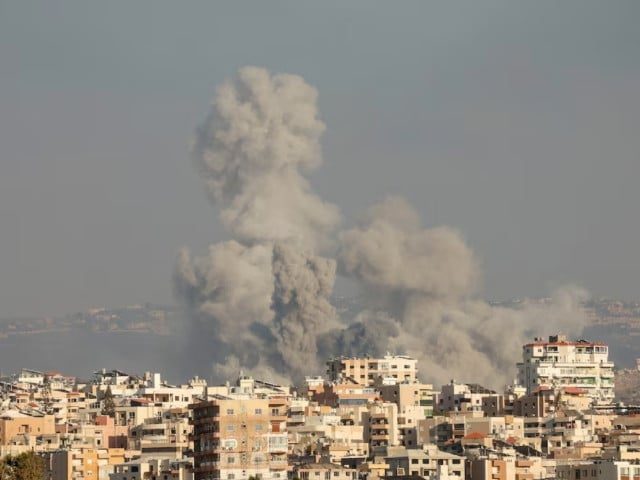Lebanese security sources have remained tight-lipped about potential further casualties, while the health ministry confirmed that six people were killed and 15 others were injured in the attack

News Desk
BEIRUT: Lebanon has been reeling under relentless Israeli airstrikes since Monday, with 558 people, including 50 children and 94 women, confirmed dead. The ongoing bombardment has also left 1,835 wounded and forced tens of thousands to flee their homes. As Israel escalates its military offensive, fears of a full-scale war engulfing the Middle East are mounting.
On Tuesday, Israeli airstrikes targeted the southern suburbs of Beirut, killing Ibrahim Qubaisi, a senior Hezbollah commander in charge of the group’s rocket division. The strike, which claimed six lives, represents another significant setback for Hezbollah, a group already facing heavy losses over the past week. Concentrated in Hezbollah-controlled areas, these strikes form part of a larger Israeli campaign to dismantle the group’s military infrastructure in Lebanon.
The strikes are stoking concerns about the potential for regional destabilization, as the prospect of a broader war looms over the oil-rich Middle East. General Herzi Halevi, Israel’s military chief, reiterated the need for continued and intensified military action against Hezbollah, indicating no imminent cessation of hostilities. The latest wave of airstrikes hit the Ghobeiry neighborhood in Beirut, damaging the top floor of a five-storey building. Lebanese security sources have remained tight-lipped about potential further casualties, while the health ministry confirmed that six people were killed and 15 others were injured in the attack.
As the conflict escalates, there are growing calls for diplomacy. UN human rights chief Volker Turk urged all involved parties to act swiftly to prevent the situation from spiraling further out of control. Echoing these sentiments, U.S. national security adviser Jake Sullivan expressed hope for a diplomatic resolution to ease tensions between Israel and Lebanon, underscoring the need for immediate de-escalation.



